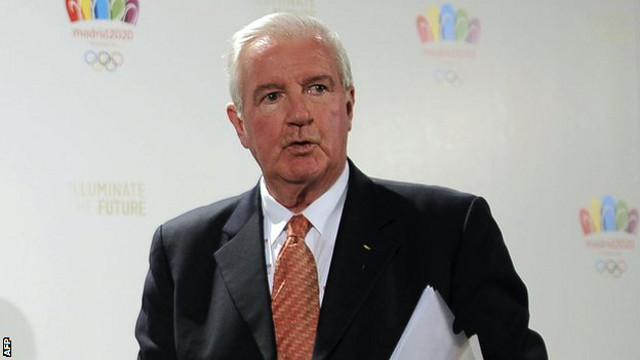SUMMARY
This is AI generated summarization, which may have errors. For context, always refer to the full article.

JOHANNESBURG, South Africa – IOC deputy president Craig Reedie was elected head of global anti-doping body World Anti-Doping Agency (WADA) Friday, November 15, after sporting leaders passed new laws that will ban cheating athletes for 4 years.
“I congratulate Sir Craig on the unanimous support you have just received,” said outgoing WADA president John Fahey after the board signalled approval of his nomination with applause.
Scotsman Reedie, 72, will take over from Fahey on January 1, 2014.
“For me this has been a 14-year period of gestation,” he told the WADA Foundation Board in Johannesburg.
“I’m delighted to have been, as far as I can see, unanimously supported by the sports movement.”
A seasoned sports administrator, he has the difficult task of intensifying the battle against banned performance-enhancers.
The sporting world will welcome back a leader seen as one of their own, amid questions over WADA’s ability and responsibilities to police the anti-doping battle.
A conference on doping in sports on Friday passed far-reaching new rules which ban first-time intentional dopers from competitive sport for up to 4 years — meaning they would automatically miss an Olympic Games.
Athletes have called for stringent punishments to deter dopers.
Less than one percent of checks give an abnormal result, though tests have jumped from 150,000 a year to 250,000 since WADA’s foundation.
The revised World Anti-Doping Code increases WADA’s powers to order doping controls and order investigations where countries do not probe cases of cheating.
Sporting bodies want WADA to play a more active role in performing anti-doping tests, as opposed to merely playing the schoolteacher that polices the code.
The doping watchdog however complains it is expected to do ever more with a budget of only $28 million (20.8 million euros), which will increase by just one percent next year.
Reedie previously served on London’s 2012 Olympics organising committee and has been an IOC vice-president since last year.
An avid badminton player, he successfully campaigned for the sport’s inclusion into the Olympics, which happened the first time at the Barcelona Games in 1992.
Reedie’s deputy will be Makhenkesi Stofile, a former South African sports minister and the country’s current ambassador to Germany.
The Scot is WADA’s third president after Fahey and first leader Dick Pound, who served from 1999 to 2007.
The International Olympic Committee designated Reedie in August to head the global doping agency, ahead of other runners the IOC’s former medical chief Patrick Schamasch from France and American 400-metre hurdles legend Ed Moses.
The presidency rotates between the body’s two founding members — governments and sports federations.
Fahey, a former Australian finance minister, served the past six years as a candidate from governments. – Rappler.com
Add a comment
How does this make you feel?
There are no comments yet. Add your comment to start the conversation.